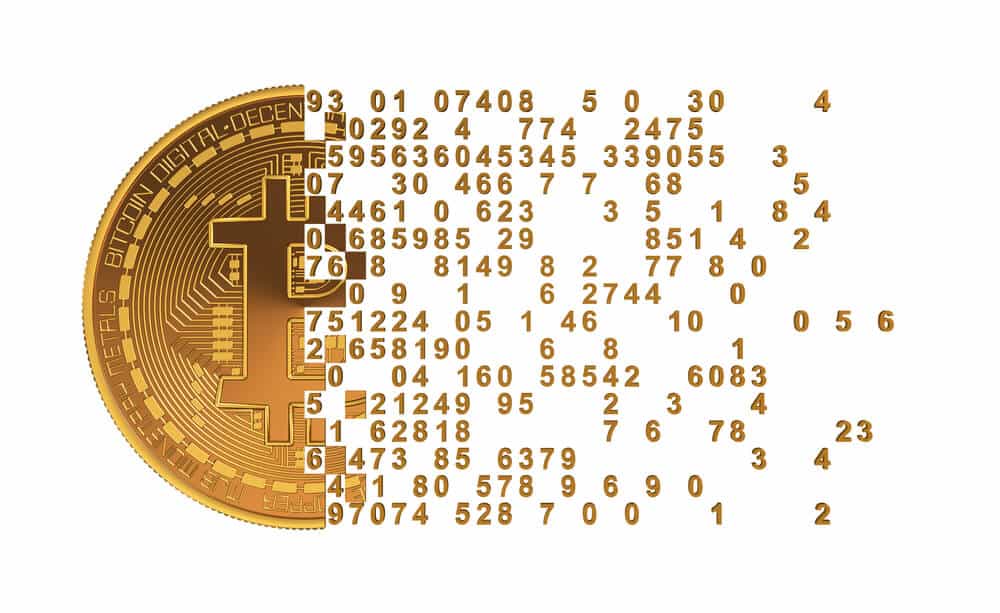Bitcoin, the big investment of the year: will the bubble explode?
The cryptocurrencies were the boom of 2017. Analysts believe that the price rises only by speculation, but there are also powerful causes that drive. A Morgan Stanley report analyzes it in depth

An article appeared on November 2 in the Economist magazine raised in these terms the boom of virtual currencies: "There may be good reasons to buy Bitcoin, but currently the only reason is speculation, think that there are others who will buy more expensive than one". That day the price of the most famous cryptocurrency exceeded USD 7,000. The closing of the year, only two months later, was at USD 13,400, almost double.
A renowned economist like Kenneth Roggoff, meanwhile, raised in the English newspaper The Guardian the reasons why the "bubble" Bitcoin should not take long to explode. The basic reason mentioned is the growing regulation of governments to control a product whose issuance is totally decentralized and with total anonymity regarding who the holders are. That article appeared in early October when the virtual currency price was "only" $ 4,200.
Although Bitcoin has existed since 2010, the great price jump occurred in 2017: it started at USD 1,000 and reached USD 20,000 to end the year with an increase of more than 1,200%, an unbeatable mark for any other financial asset. .
All the forecasts that were profusely known about an imminent burst of the speculative wave mounted through Bitcoin and other cryptocurrencies were eclipsed by the spectacular jump in prices. But that does not mean they are equivalent. If it is a giant bubble, it could explode later. Those who think in this way believe that the value of these cryptocurrencies will tend to zero. Even a lot of reports have been written comparing this spectacular rise with other speculative processes. One of the most recent was the "dotcom" in 2000, which made disappear a large number of companies that looked to the Internet and new trends in technology. Much more behind is the crisis of the tulips, the first big bubble that recalls the history of capitalism, back in the late eighteenth century.
But on the other side there are those who think that the revolution of the alternative currencies has just begun and believe that there is no ceiling for the price rise. From that point of view, any downward adjustment of the price like the one that occurred in the last ten days represents a purchase opportunity. The absence of a central bank emitting currency indiscriminately and the absolute control over the issue that will take place until the year 2140 in the case of Bitcoin gives a special appeal to the product.
But there are also fears for the possible intervention of the different governments around the world. The fall that happened in the last week of 2017, for example, was related to new regulations and restrictions imposed by the government of South Korea. And it is possible that throughout 2018 other governments will follow the same path. The fear is that virtual currencies are used for evasion and money laundering operations, since they do not use the usual banking channels, which are available to regulators.
The mystery remains whether or not it is a big bubble, or a kind of scam, which is only sustained because another buyer appears willing to pay more. The detail in this case is that there is nothing in the asset that justifies that jump in price, but only the curiosity that arouses among a group of investors, attracted by quick profits.
The schemes of pyramid schemes, known as "Fonzi", just require some of those characteristics, which are basically four: promise of high short-term benefits, obtaining financial benefits that are not well documented, aimed at an audience with little knowledge financial and that are related to a single promoter. The first three conditions are present in the case of the Bitcoin furor, but not the latter, since there is no visible "company" that manages the business or controls the issuance of cryptocurrencies.

A few days ago the investment bank Morgan Stanley made an exhaustive report related to Bitcoin and in general to the phenomenon of cryptocurrencies, from which several conclusions can be drawn. These are some of them:
. There are currently 16.7 million Bitcoins, the 80% that the system plans to issue. It will reach a total of 21 million. 99% up to 2040 and the remaining 1% over the next 100 years.
. In 2016 there were 11 investment funds dedicated to cryptocurrencies, last year the figure had already risen to 84. The volume under administration of these funds reaches USD 2,000 million.
. 62% of the total volume of cryptocurrencies is represented by Bitcoin.
The volume of daily operations with Bitcoin had an exponential growth last year, with a jump from 500 million to 4,500 million dollars.
. The cost of operating Bitcoin increased significantly from USD 5 to 20 in one year. A traditional banking operation costs between 0.25% to 3% of the amount.
. One of the biggest problems that cryptocurrencies have today is their low level of acceptance in the most important e-commerce sites. Of the 500 that register the highest volume, only 3 allow to buy with cryptocurrencies.
. There were several cases of "hacking" to sites that are in charge of guarding Bitcoin. The most recent was last December, for USD 63 million (NiceHash).
Morgan Stanley's report asks a series of questions to understand a bit more about what the cryptocurrency universe is about:
- Can Bitcoin be valued as a traditional currency?
-No, because there is no interest rate associated with keeping this asset for a certain period of time.
-Can it be considered then as a kind of "digital gold"?
-Could be. However, it has no intrinsic value, which arises from its use for the manufacture of jewelry or electronics. However, many investors equate it with the possession of a precious coin.
- Is it a virtual payment network?
-Yes, although at the moment it is difficult to climb and there is no commission charged per transaction. It is estimated that the daily purchases in the world using Bitcoin total about USD 300 million, against USD 17,000 million VIS

Mintcoin is awesome If you don't have much to invest. Just hold for 20 years. You are welcome ;)